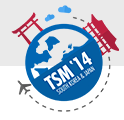1415T2g1 South Korea/Participant Information/Peh Zu Cheng
Contents
About Zu Cheng
SMU email: zucheng.peh.2012@sis.smu.edusg
Facebook: Zu Cheng
Academic Year: 3
Degree: Bachelor of Science (Information Systems Management)
2nd Major: Finance
Interests: Travelling, EDM, Road Cycling, Gaming, Movies, FOOOOOD
Past Co-Curricular Involvements:
- Public Relations Director of 10th Management Committee, SMU Information Systems Society (SISS)
- Events Director of GLOW Bash 2013,
- Sales Director for SMU CHALLENGE 2013,
- Member for SMUX & Stereometa
Why TSM South Korea?
- What motivates you to join TSM?
While doing my internship at Singtel- one of the largest ICT firms in the Asia- I realized that there are problems that many MNCs face, such as inefficiencies ,bureaucracy and inability to communicate effectively, simply due to their vast size. These issues does not seem to be a concern in SMEs and startups , whom are able to complete projects and changes in the company of the same magnitude at a much faster speed and requiring much lesser resources & management. In an increasingly face-paced world of business, the speed of changes to technologies (and eventually business models) are not emulated by these MNCs. Most of the time they are lagging behind SMEs & Startups, who are able to grapse , develop , execute and monetize these changes quickly.
As someone who is highly interested in Consulting & IT Strategy, I'm keen on in learning about what makes Startups work better than such cumbersome corporations. I believe that TSM South Korea would give me a broad and in depth perspective of the factors that lead to successful start-ups, and also give me an insight as to entrepreneurship in a global context and how it is done differently than in Singapore
- Why pick South Korea?
Recently Forbes stated that South Korea will be the next global hub for tech startups . South Korea has become the world leader in patent activity, and information and communication technology, and it is famous for its high penetration rates of broadband and 3G phone use. Even though Singapore & South Korea are both part of the 4 Asian Tigers, Singapore's startup scene is not as developed and pervasive as that of South Korea. While there may be differences that make Singapore & South Korea difficult to compare against (population, industry make-up etc) , i believe there is a enough similarity to pique my curiosity about why is Singapore's start-up scene different from South Korea, and what needs to be done to emulate their advantages and then surpass them.
Internship Opportunities
- What types of internship opportunities interest you?
- IT Strategy
- Advertising IT & Social Media
- Business Analyst
- Any ideal firms (based in South Korea) that you wish to join?
EnKINO
Starting a business
- What types of business interest you?
- Social media & Advertising
- Consulting
- Business Analyst
- What plan do you have in starting a business?
I do not have a concrete plan currently. However, i have envisioned myself starting a business within the next decade. Currently i am in Prof Desai's IT Business & innovation class, and have come up with a few product and service innovation ideas that i believe have a good foundation for starting a business. My current plan is to intern/work in startups and in established businesses first, so as to gain the requisite experience ,confidence & financial support to start a business.
Past Experiences
- Describe your past experience (entrepreneurship, or works in start ups etc)
While i may not have experience in startups or entrepreneurship, i have worked in both SMEs(Kim Choo Kitchen, Owell BodyCare) & MNCs (Singtel). My experience so far has shown me what aspects of established corporations should be emulated & what should not. One example is the process bottlenecks & inefficiencies due to company bureaucracy, politics and redtape. I believe this can be applied to startups as well; even though they would not encounter these issues as heavily as compared to these corporations, it should be proactively controlled as the startups slowly grows into established corporations.
In addition, working in SMEs have shown me issues with Talent acquisitions, retention and general manpower-related problems - Especially in the context of Singapore, where acquring good talent means high expenditure for small companies , & limits on getting cheap labour due to laws limiting foreign labour. I believe that these issues are huge factors in preventing these SMEs from growing into large , established corporations.

